Life is full of challenges, and Harvey Milk faced many. Discover key struggles and how they were overcome.
Harvey Milk was a pioneering American politician and activist. He made history as the first openly gay man elected to public office in California, serving on the San Francisco Board of Supervisors. Milk's political career, though tragically short, was marked by his advocacy for LGBTQ+ rights and social justice. He championed ordinances protecting gay rights and fought against discrimination. Milk's assassination, along with Mayor George Moscone, shocked the nation and solidified his status as a martyr for the gay rights movement. His life and legacy continue to inspire activists and politicians fighting for equality and representation.
1955: Resignation from the Navy
In 1955, Harvey Milk resigned from the United States Navy at the rank of Lieutenant (junior grade). He was forced to accept an "other than honorable" discharge rather than face a court-martial due to his homosexuality.
1968: Alioto attracts big corporations
Since 1968, Mayor Joseph Alioto had been luring large corporations to the city despite what critics labeled "the Manhattanization of San Francisco".
1969: Brown Pushes for Legalization of Sex
In 1969, Assemblyman Willie Brown pushed for legalization of sex between consenting adults in California, but was unsuccessful.
1970: Milk Fired for Refusing to Cut Hair
In 1970, Harvey Milk was fired from his job at an investment firm for refusing to cut his hair, due to his increasing frustration with the political climate after the U.S. invasion of Cambodia.
1970: Increased Arrests for Public Sex
In 1970, nearly 90 people in San Francisco were arrested for having sex in public parks at night due to Mayor Alioto's request to target the parks.
1971: Arrests for Public Sex in San Francisco
In 1971, 2,800 gay men were arrested for public sex in San Francisco. This high number contrasted sharply with New York City, which only recorded 63 arrests for the same offense that year.
1973: First campaign for supervisor
In 1973, Harvey Milk, a self-proclaimed "born politician", ran for supervisor. He promoted financial management, individual empowerment, and reorganization of supervisor elections to district ballots. He advocated for cultural liberalism, opposing government interference in private sexual matters and favoring marijuana legalization. Despite lacking experience, his speeches and media skills garnered significant press, earning him 16,900 votes and 10th place out of 32 candidates.
1975: Second campaign for supervisor
In 1975, Harvey Milk ran again for supervisor. He adopted a more conventional approach by cutting his hair, abstaining from marijuana, and avoiding gay bathhouses. Milk gained support from the teamsters, firefighters, and construction unions. His store, Castro Camera, became a hub for his campaign activities.
June 21, 1977: Robert Hillsborough's murder
On June 21, 1977, Robert Hillsborough was murdered, stabbed 15 times, while his attackers shouted anti-gay slurs. Mayor Moscone and Hillsborough's mother blamed Anita Bryant and John Briggs. One week prior, Briggs had referred to San Francisco as a "sexual garbage heap".
1977: Dade County civil rights ordinance and reaction
In 1977, activists in Miami, Florida passed a civil rights ordinance that made discrimination based on sexual orientation illegal in Dade County. Christian fundamentalists responded with the 'Save Our Children' campaign led by Anita Bryant, which successfully overturned the ordinance.
1977: Castro residents protest Dade County ordinance vote
In 1977, following the overturning of the Dade County ordinance, 3,000 Castro residents demonstrated. Milk led a five-mile march, declaring that Anita Bryant would create a national gay force.
November 7, 1978: Proposition Lost by More Than a Million Votes
On November 7, 1978, a proposition lost by over a million votes, stunning gay activists on election night. In San Francisco, 75% voted against it.
1978: Briggs' anti-gay bill
In 1978, California State Senator John Briggs, motivated by the success of Christian fundamentalists in Miami, wrote a bill that would ban gays and lesbians from teaching in California public schools. He maintained that it was just politics.
1978: Campaign against Proposition 6
In 1978, Harvey Milk campaigned against Proposition 6, dubbed the "Briggs Initiative", throughout California. This proposed law would have made firing gay teachers mandatory. Milk debated Briggs, countering his claims with statistics and jokes.
May 21, 1979: Dan White Acquitted of First-Degree Murder
On May 21, 1979, Dan White was acquitted of the first-degree murder charge but found guilty of voluntary manslaughter in the deaths of Milk and Moscone. He was sentenced to seven and two-thirds years in prison and cried upon hearing the verdict.
Mentioned in this timeline

Barack Obama the th U S President - was the...
The United States of America is a federal republic located...
California is a U S state on the Pacific Coast...
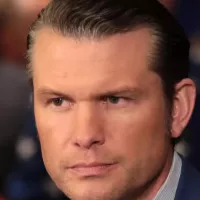
Pete Hegseth is an American author former television personality and...
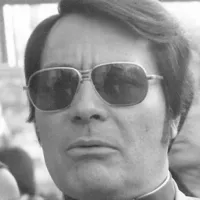
Jim Jones was an American cult leader who founded the...
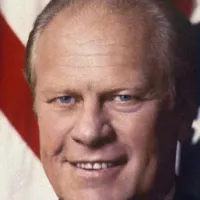
Gerald Ford the th U S President served from -...
Trending

43 minutes ago Selena Gomez's Spiced-Plum Manicure and TikTok Clone Theory Spark Buzz
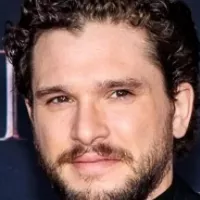
44 minutes ago Kit Harington and Sophie Turner Gag After On-Screen Kiss in New Movie

44 minutes ago Trump administration updates, Iran nuclear efforts, and White House controversies unfold.
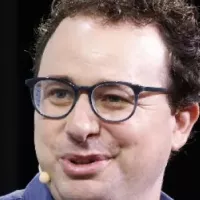
44 minutes ago Dario Amodei Highlights India's Central Role in Shaping AI's Future at AI Summit.
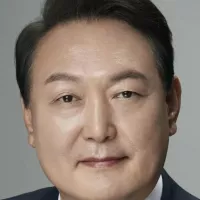
2 hours ago Yoon Suk Yeol, South Korean ex-president, receives life sentence for insurrection and martial law.

4 hours ago Maya Hawke and Christian Lee Hutson celebrated wedding with Stranger Things cast present.
Popular

Jesse Jackson is an American civil rights activist politician and...
Randall Adam Fine is an American politician a Republican who...

Pam Bondi is an American attorney lobbyist and politician currently...

Barack Obama the th U S President - was the...

Martin Luther King Jr was a pivotal leader in the...

Ken Paxton is an American politician and lawyer serving as...